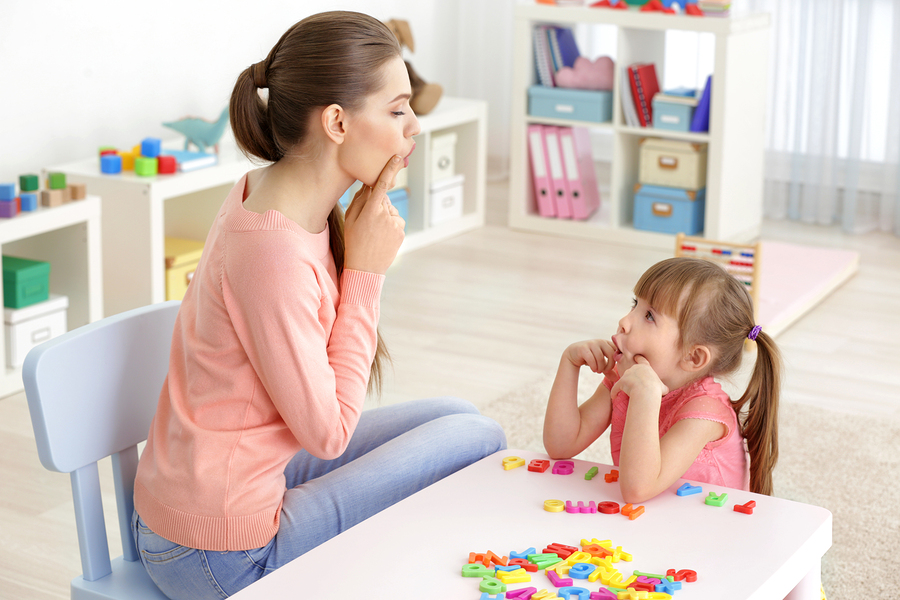
THERAPY
Our therapists currently provide therapy services in the clinic and the client’s preschool or school. We offer weekly and fortnightly therapy. Following assessment your clinician will inform you of their recommendation based on your child’s results.
Therapy sessions will focus on areas of delay so we can help your child develop their communication skills. We value a family centred approach to intervention by working not only with your child but with your whole family. Therapy can be delivered in different forms based on your child skills level, for example therapy may be play based or table top work.
There are numerous benefits to accessing speech therapy including:
- Giving your child an opportunity to develop their talking skills to give them a voice
- Helping them understand and comprehend the world around them
- Developing your child’s life skills including independence and social skills
- Helping your child access their academic curriculum at school
- Developing your child’s confidence
Therapy may focus on a number of different areas including;
Receptive Language/Comprehension
This is the ability to understand and comprehend verbal or written communication. Children who have difficulties with receptive language may have difficulty following instructions, understanding concepts (e.g. in, on, tall, short) and understanding questions.
Expressive Language
This is the ability to express and communicate your wants, needs and ideas with others. Children with expressive language difficulties may not use grammatically correct word forms and may have difficulty using and combining words.
Speech Production (Phonology, Articulation, Dyspraxia)
This is the way a child produces sounds and words through movement of their tongue, lips, teeth and palate. Children who have speech sound difficulties may have patterns of sound errors (phonology), difficulty with individual sounds (articulation) or difficulty with motor planning (dyspraxia).
Reading and Spelling
This involves pre literacy skills (phonological awareness) and a child’s ability to read and write accurately. Children who have difficulties in these areas may present with difficulty understanding words which are made up of separate sounds, reading at an appropriate rate, reading words accurately, letter reversals and difficulty knowing what sounds a letter makes.
Stuttering
This looks at a child’s fluency when talking. Stuttering can present in various ways it can involve the repetition of individual sounds, whole words and phrases, prolongations and blocks.
Pragmatics/Social Skill
This is comprised of both verbal (e.g. topic maintenance, turn taking in conversation) and non-verbal (e.g. eye contact, body language) communication. Children who have difficulty with social communication may present with difficulties interacting with others and understating communicative intent.
